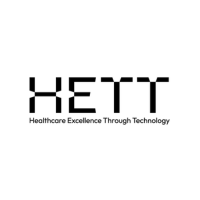Written by EBO
Two pressing issues in the healthcare industry that require immediate attention are accessibility and demand. Limited access to timely healthcare services and years of bureaucratic red tape have resulted in impersonal experiences for patients, a lack of communication between healthcare providers and patients, and a distance between patients and their own care plans. Patients are observing a healthcare system that lacks resilience and is facing resource exhaustion. So how can we solve this?
Conversational AI and Healthcare
At EBO we’re privelaged to tackle both problems using our innovative AI solutions that play a pivotal role in fostering more effective and inclusive healthcare provision. By leveraging the power of Conversational AI and Natural Language Processing, EBO functions as a 24/7 digital gateway, engaging patients in intelligent, human-like automated and personalised 2-way automated conversation. This enables patients to manage their healthcare at any time on any channel/device and in over 100 languages.
Lowering the bar for Digital Inclusion
EBO’s solution addresses the digital literacy barrier, a significant NHS concern, where only 56% of citizens possess basic digital skills [Eurostat]. The solution is designed to be accessible to those with limited digital literacy, offering a self-intuitive interface and easy 2-way human-like dialogue.
"Around one-third of all adults are not sufficiently digitally literate to access or utilise any of the Digital Services which are available from the NHS. We need to solve that." EBO’s CEO, Dr. Gege Gatt states.
Restoring Patient Agency
Engaging patients through conversations is the key. By enhancing patient engagement, the healthcare system could significantly improve clinical outcomes. The focus isn't merely on technology but on fostering meaningful conversations and understanding patient needs.
Integrated with a Trust’s Electronic Patient Record, EBO’s AI solutions, in the form of Virtual Assistants, retrieve and enter data while exhibiting empathy in interactions, comprehending patient intents and emotions. Transcending typical digital initiatives, the VA’s machine learning gives it unique continuous improvement capabilities.
Where can this be implemented?
The advanced capabilities of EBO’s Platform are meticulously adapted to address the specific needs and use-cases unique to the healthcare industry. EBO's solution works across a number of sectors. Some examples of use cases include:
- Mental Health Support – an AI automated non-clinical digital resource that provides self-care information and signposts users to mental health advice and support 24/7 via 2-way human-like conversation. Thanks to its Natural Language Processing and Machine learning, EBO’s VA understands sentiment and replies with accuracy and empathy.
- Women’s Digital Health Hub - In response to The Women's Health Strategy for England, EBO's digital Women's Health Hub (WHH) introduces an innovative approach to women’s health; one that places accessibility, education, and inclusivity at the heart of its solution, ensuring that no woman is left behind.
Tackling the Clinician Shortage
The NHS faces a considerable challenge with an expected shortage of clinicians and a projected deficit of 10 million clinicians in Europe by the decade's end. AI can automate processes and free up clinicians from repetitive tasks, allowing them to focus on what truly matters - patient care.
“The key here is not to replace human clinicians but to provide them with more time to care for patients.”- Dr. Gege Gatt, EBO’s CEO.
AI provides a more accessible and intuitive avenue for patients to engage with the NHS. By automating tedious administrative duties and simplifying procedures, AI has the potential to enhance patient experiences, making their journeys more convenient, patient-friendly and centered around their needs.
The NHS must advance its current reactive processes by utilising data to adopt a more proactive strategy. Meanwhile, the intricate and hard-to-access systems require a complete overhaul to become universally adaptable and user-friendly, meeting the unique needs of each patient.
Trust and Choice in AI Adoption:
Establishing trust and presenting options are essential factors in the integration of AI. Patients should be at ease utilising AI, without any sense of compulsion. According to Dr. Gatt, the successful adoption of AI occurs when patients have the freedom to choose, rather than feeling pressured to use artificial intelligence.
The future of work involves humans and AI working together as a team.
Looking ahead to 2030, Conversational AI and automation are key foundations in realising our goals. Through conversational AI, EBO aims to address issues like digital literacy, clinician shortages, and patient engagement, making healthcare more accessible, efficient, and patient-friendly. To find out how AI automation can help your NHS Trust and bring you closer to your patients, contact EBO today.
%20(1).png?width=500&height=58&name=HETT%20insights%20logo%20RGB-04%20(1)%20(1).png)


